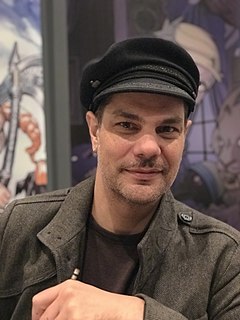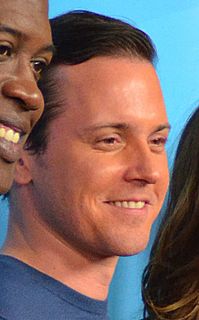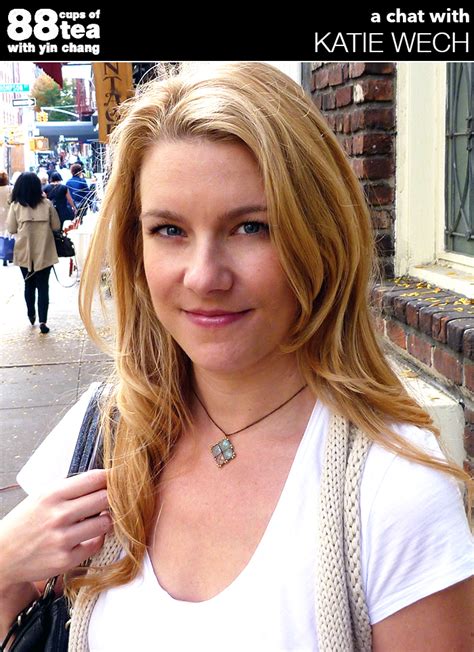A Quote by Salman Rushdie
Matthew Wiener on Mad Men writes the entire series before they start shooting, and if you have that, then what you can do with character and story is not at all unlike what you can do in a novel.
Related Quotes
Before I begin a novel I have a strong sense of at least one central character and how the story begins, and a more vague sense of where things may wind up, but at some point, if the novel is any good at all, the story and characters take on lives of their own and take over the book, and the writer has to be open to that.
It [going from mini-series to series] was never even discussed because it [The Starter Wife] was, you know, an adaptation of a novel. And we - the mini-series encompassed the whole novel. And so it was always going to be a finite sort of event. And then I imagine when people started to really respond to the show and then we got ten Emmy nominations, USA sort of said, "Oh, I think maybe we have something here."
If you do a black character or a female character or an Asian character, then they aren't just that character. They represent that race or that sex, and they can't be interesting because everything they do has to represent an entire block of people. You know, Superman isn't all white people and neither is Lex Luthor. We knew we had to present a range of characters within each ethnic group, which means that we couldn't do just one book. We had to do a series of books and we had to present a view of the world that's wider than the world we've seen before.
I always have to start with a character that I can really hook into, and then build from there. I have writer friends who start from a world, an object or some kind of concept that they then hone and widdle into a story. But, for me, it has to be a character that I can really sink my teeth into and live with, for months and months.
I don't do all the background and the worldbuilding before I start the story. What I do is I work out the bare minimum I need to start the story, and often that really is a bare minimum - it's a character in a situation, and I know nothing about the character, I know nothing about the situation, and then I think about it for a long time, and make notes about where I think the story is going to go and so on, but I don't really make notes to do with the background or the magic system or the world.





































